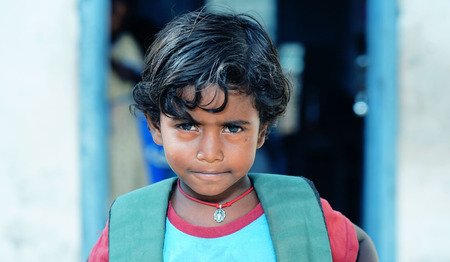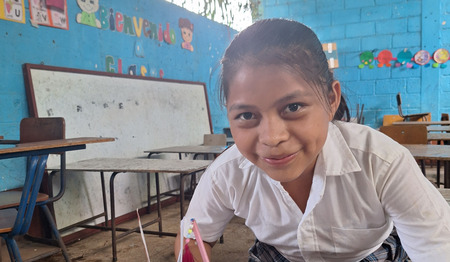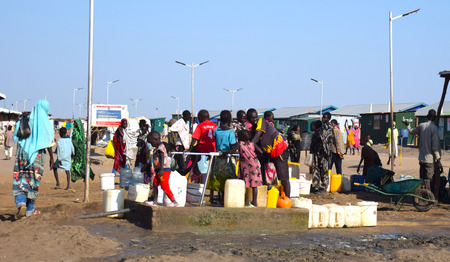Learn more about Shared Futures in Pakistan
In the rural areas of South Punjab and the Sindh people struggle against poverty and youth lack economic opportunities. Hindu and Christian communities suffer severe forms of discrimination. By learning and working together youth from different faiths start to live in harmony.
Poverty in rural areas and discrimination of minorities
Pakistan is the fifth most populous country of the world. The country has become a deeply polarized state, with continued power struggles between political elites and state institutions, resulting in an ever-increasing gap between the rich and the poor. Rural poverty is 2.5 times higher compared to urban poverty rates. The south of Punjab and the interior of Sindh struggle with poverty caused by limited economic opportunities, poor governance, a challenging natural climate, manmade disasters, the lack of pro-poor policies and religious discrimination. Minorities are exposed to discrimination of various types and at various levels. The discriminatory blasphemy laws have long remained a looming threat, growing sharper and more perilous with each passing day. Incidents of blasphemy, international events (issuance of cartoons, attempts to disgrace Islam) add to the tensions and feelings of insecurity, making religious minorities feel unsafe within their own communities. Minorities mostly reside in small settlements, many of them in slums and in indecent living conditions.
Shared Futures in Pakistan
 The Shared Futures programme is initiated by Kerk in Actie and implemented since 2018 by Pakistani NGO’s in south Punjab (4 districts) and in Sindh (2 districts). It aims to economically uplift 500 youth of different faiths per year, enhance social cohesion and prevent religious extremism. Combining the socio-economic and interreligious component strengthens the insight by youth of different backgrounds that a 'Shared Future’ is profitable for all of them. The programme works along three pathways: a) communities, b) public duty bearers and c) advocacy. Each pathway has a specific set of activities which contribute towards attaining an impact to have a just and resilient society upholding freedom of belief and fostering interfaith cohesion through socio- economic cooperation.
The Shared Futures programme is initiated by Kerk in Actie and implemented since 2018 by Pakistani NGO’s in south Punjab (4 districts) and in Sindh (2 districts). It aims to economically uplift 500 youth of different faiths per year, enhance social cohesion and prevent religious extremism. Combining the socio-economic and interreligious component strengthens the insight by youth of different backgrounds that a 'Shared Future’ is profitable for all of them. The programme works along three pathways: a) communities, b) public duty bearers and c) advocacy. Each pathway has a specific set of activities which contribute towards attaining an impact to have a just and resilient society upholding freedom of belief and fostering interfaith cohesion through socio- economic cooperation.
 Training of Youth
Training of Youth
Shared Futures provides youth of different faiths with vocational skills in 6 to 12 months. These vocational skills include mobile repairing, driving, tailoring, beautician, computer repairing, electrical repairing, and artificial insemination. This is followed by grants to establish their own small business, helping them to develop their livelihoods, employability and ultimately their resilience. Until now nearly 1600 youth have benefited directly, being trained in vocational skills and being provided with the support to start their own businesses.
Positive Interfaith Relations
The vocational training offered to youth of diverse faiths provide space and time to introduce youth to concepts of interfaith and peaceful coexistence in the society. It has helped to increase the levels of acceptance and understanding of other faiths, which builds the foundation for behavioural changes both on an individual and a society level in communities. Local businesses and shops begin to emerge where members of different faith groups mingle and meet. Such interfaith trade and business locations may ignite a conflict transformation process in the wider community. In some cases, joint business ventures are established by the youth of different faiths, which plays a stimulative role in the acceptance of other faiths. There are also all kinds of different activities to promote unity and brotherhood among youth of different faith groups: sports festivals, tree planting, joint celebrations of religious and cultural festivals, visits to significant religious and cultural sites. The increased chances of interaction increase the familiarity between faith groups and help to reduce intergroup anxieties and prejudices.
The Support of Public Dutybearers
Public duty bearers are engaged, thus spreading the narrative of Shared Futures. Societal, political and governmental support aides in promoting and advocating for peaceful co-existence among communities. The active inclusion of such leadership in various activities, strengthens various communal and state level opportunities, from which youth can benefit. Youth from mixed religious communities take admission in governmental technical institution without hesitation and feel secure. Through the Shared Futures approach which works with public duty bearers, hundreds of conflicts are resolved, (religious) minorities are given access to government grants, and measures are put in place to de-escalate religiously motivated violence.
Lobby and Advocacy
Shared Futures partners engage with various stakeholders, showcasing the approach and impactful learnings of the programs. Various seminars, conferences, exposure visits of academics and engaging with the departments of social sciences, help to amplify the approach, its need and impact.
Changes Systematically Measured
Pakistani partners use the Most Significant Change methodology to measure systematically personal, relational and socio-economic change. Sharing the results of such monitoring efforts among stakeholders encourages the continual improvement of the programme.
The Shared Futures programme is developed by Kerk in Actie and active in Pakistan, Kenya, Egypt, Cameroon, Ghana and the Netherlands and will start in 2026 in Bangladesh.




